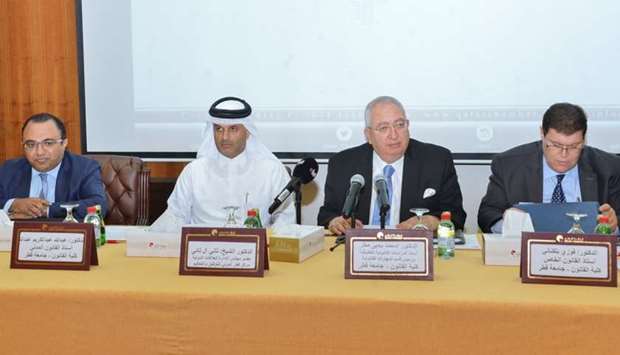The Qatar International Centre for Conciliation & Arbitration (Qicca) at Qatar Chamber, in co-operation with the College of Law at Qatar University, recently held the seminar ‘Public-Private Partnership: Reality & Challenges in Qatar’ in Doha.
The seminar included several recommendations, including the preparation of the legislative and institutional frameworks necessary for a successful public-private partnership (PPP), and examining the experiences of successful experiments in other countries, as well as providing a database on the services that can adopt PPP.
It also recommended providing training programmes for government bodies to ensure successful negotiations with the private sector, as well as the establishment of a neutral body to monitor the performance and quality of the PPPs.
In a statement, Qatar Chamber said the seminar was part of the project ‘Towards Reforming the Economic Legislative Mechanisms for Achieving Legal Security in Light of the National Policies of the State of Qatar’, which is a joint research between Qicca and the College of Law.
The research aims to combine experts’ and businessmen views on PPP and take advantage of other experiences and making recommendations and conclusions about the PPP.
Qicca board member for International Relations Dr Sheikh Thani bin Ali al-Thani said, “PPP has become a pressing national need, noting that it included a number of objectives that enhances the national economy’s resilience and strength.”
He also noted that PPPs help encourage the private sector to participate in national projects and increases investments, thereby increasing social and economic development, as well as enabling the government to implement its projects efficiently.
Sheikh Thani noted that Qatar National Vision 2030 underscored the importance of the private sector participation in the infrastructure projects of the country.
Dr Mohamed Yahya Matar, the research project manager and professor of Applied Legal Studies and head of the Legal Skills Department at the College of Law, said the PPP law is part of the government’s measures and decision to strengthen and stimulate the private sector and support its role in the inclusive development of the country.
Matar said its joint-research project with Qicca would be extended for the next three years, adding that it is based on legal and commercial inquiries to the business community, and responding to inquiries regarding the PPP. He also said the project is based on legislation and training.
Professor of Civil Law at the College of Law, Dr Abdullah Abdulkarim Abdullah, delivered a presentation on ‘The Importance of Public-Private Partnership: The Approach of International Models’.
He said PPPs help in the development of international commercial transactions for the national economy, and the improvement of the country’s status of in international economic indicators. “PPP contributes to increasing the attractiveness of foreign investment, as well as to diversifying strategic options,” he added.
Dr Fawzi Belknani, Professor of Law at Qatar University’s College of Law, discussed the topic ‘Public-Private Partnership: The Contractual Framework’, wherein he said PPP is an agreement between the administrative bodies of the country and the private sector with a view to providing services or implementing state projects.
Qatar Chamber economic advisor Dr Mohamed Ibrahim said Qatar’s government exerted efforts and offered many initiatives through the ministerial group to stimulate and encourage the private sector to become an effective partner for the sustainable development.

